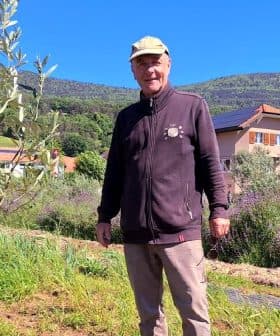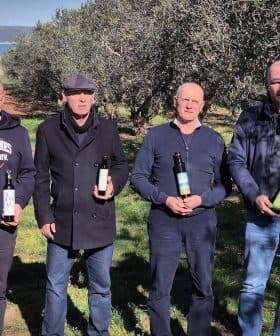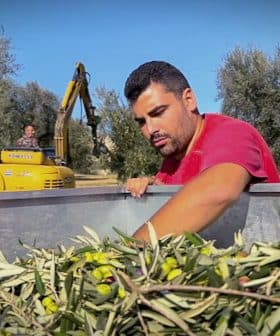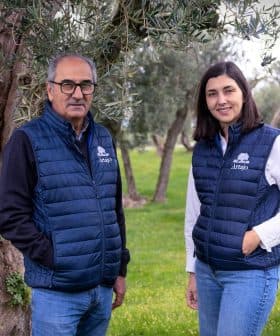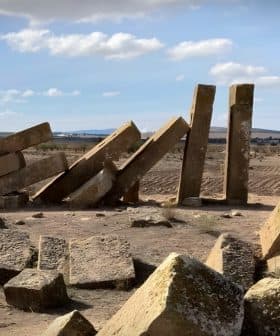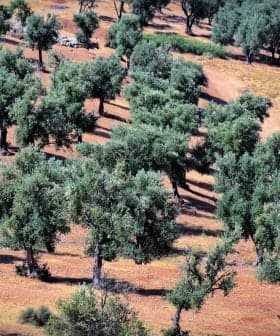Olive Farmers in Alentejo Seek Sustainable Certification Label
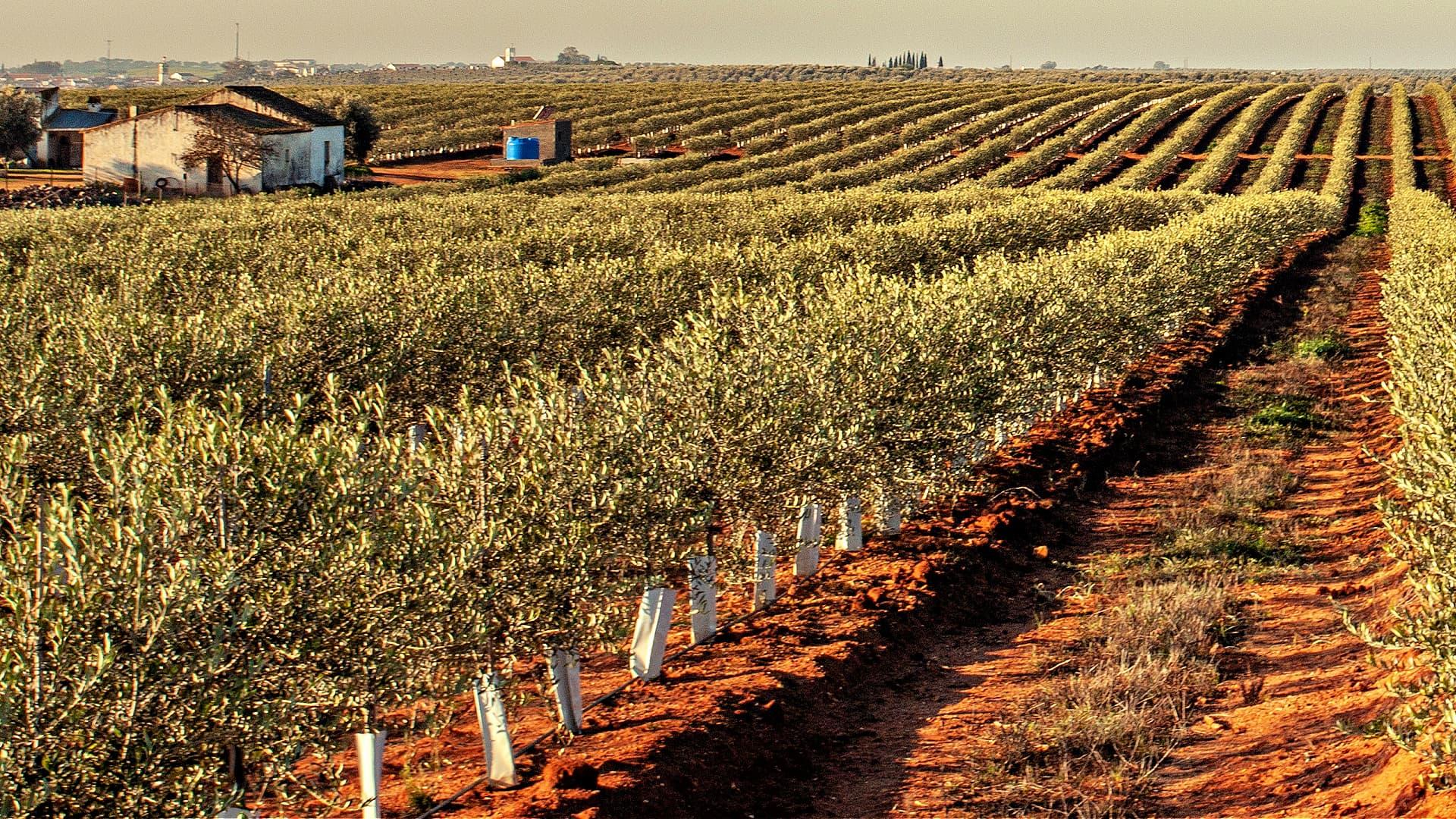
The Alentejo Olive Oil Sustainability Program (PSAA) involves approximately 20 olive oil producers in Alentejo, aiming to reduce the environmental impact of olive oil production while enhancing social and economic benefits. The project will create a sustainability benchmark and certification to promote the sustainable approach of certified companies, with the goal of increasing competitiveness in the local industry and potentially serving as a model for other sectors and countries.
A group of approximately 20 olive oil producers from the southern Portuguese region of Alentejo is joining the new sustainable olive farming development project recently launched by Olivum, a producers’ association, and the University of Èvora.
The Alentejo Olive Oil Sustainability Program (PSAA) extends to all areas of olive oil production. It aims to shrink the industry’s environmental footprint in the country’s largest olive oil-producing region while increasing its social and economic ones.
The main challenge for the sector is to win over more consumers and more markets that value these practices.
A new management tool will also be developed to promote and monitor the sustainable performance of Alentejo olive oil to increase the competitiveness of the local industry.
The project promoters emphasized how the final goal of PSAA is to produce a recognizable and authoritative certification or quality label that proves the sustainable approach of the certified companies and would be recognized both nationally and internationally.
See Also:Farmers Are Facing the Brunt of Portugal’s Worsening Drought“PSAA aims to create a sustainability benchmark, in its environmental, social and economic dimensions, for the production of Alentejo olive oil,” Pedro Lopes, president of the board of directors of Olivum, told Olive Oil Times.
“This benchmark will help strengthen the sector’s entrepreneurial capacity, improving its performance and efficiency in the use of resources, its productivity and value creation,” he added.
The project’s significance is highly related to the region’s role in the last few years in Portugal’s olive oil sector, with investments in modern growing and milling techniques and infrastructure that have contributed to the steady growth of the country’s country’s olive oil output.
Spanish firm Juan Vilar Strategic Consulting estimates that 50 percent of the Portuguese olive industry is located in the Alentejo region.
According to International Olive Council data, Portuguese olive oil production has steadily grown over the past decade, rising from 76,200 tons in the 2011/2012 season to the 120,000 tons expected for the current season.
However, Olivum officials believe the current IOC estimate to be on the conservative side and expect production to reach 180,000 tons in 2021/22.
According to Juan Vilar Strategic Consulting data, Portugal’s olive oil sector generates a turnover of about €470 million per year and provides 6.6 million working days.
“Recent studies show that current market demands are related to sustainability, origin and form of production in environmental and social aspects,” Lopes said. “Therefore, the main challenge for the sector is to win over more consumers and more markets that value these practices. That’s why the creation of the PSAA is so important.”
“Another major challenge is promoting the image and value of sustainable Alentejo olive oil, which will have to go through an intelligent marketing and communication strategy,” he added.
For a company to be recognized by the PSAA as sustainable, it will have to comply with a range of requirements in its operations in the grove or mill.
Maria Raquel Lucas, the project’s coordinator and a professor at the University of Èvora, told Olive Oil Times that each parameter would be associated with a minimum reference level of sustainability.
See Also:Spain and Portugal Request European Aid to Fight Ongoing DroughtAccording to Lucas, local producers should work together to achieve a more participative and inclusive approach to grasp the full spectrum of the specifics of the industry and the opportunities deriving from cooperation.
Such an approach would foster “a favorable environment for the competitiveness and added value chain and for the wide and intelligent communication, dissemination and promotion of the olive oil sustainability program and its principles,” she said.
“It is very important that Alentejo olive oil can communicate more and better the good practices that already exist on environmental, social, and economic issues, which greatly impact the Alentejo region,” she added.
“The sector is strongly committed to new technologies and renewable energies so that olive groves and mills are economically and environmentally more sustainable, while at the same time encouraging employment and the installation of new companies with knowledge and technology in the region,” Lucas continued.
The first steps for PSAA will include the adoption of an olive oil production sustainability benchmark and evaluating the performance of the pilot group of producers. Best practices from this first step will then be shared.
PSAA will also lay the foundation for developing the Digital Sustainability Program.
“All the information and contributions from the pilot group will be used to develop [the platform],” Lopes said.
“This is a procedure and a strategy based on actions requiring low investment from the members, yielding fast returning benefits,” Lucas added. “This is a method of continuous improvement which allows members to develop and implement the program at their own speed.”
Lopes and Lucas emphasized how the PSAA model can easily be applied to other sectors and countries.
“PSAA is a tool for sustainability, which is why it is designed, planned and structured to be implemented in any sector, region or country, according to the context of each operator,” Lopes said. “We aim to make the PSAA and the sustainability of Alentejo olive oil an international reference in the field of sustainability.”
“The definition of the certification process according to which the recognition of the Alentejo olive oil for their sustainability performance will happen, avoiding exposure to reputation risks, will be another following project,” Lucas concluded.



